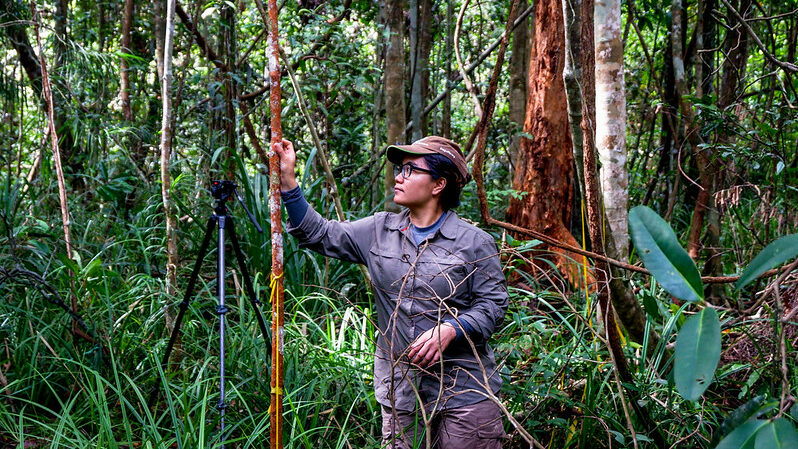And so it’s come to this. The inspiring mobilisation of Gen Z, the ever more urgent warnings from scientists, and the heartbreaking impacts of a world living in a changed climate have made straight out climate denial untenable. But we’re a long way still from climate justice.
Big polluters that have continuously failed to stop their business models pumping out carbon or driving deforestation are now hoping they can simply throw money at the problem to make it go away.
That ‘away’ they’re relying on – through a reliance on carbon offsetting to deliver their net zero claims – is the Global South. It’s the forests whose indigenous stewards are already fighting deadly battles to defend their rights. It’s the lands of communities who are already on the frontline of devastating climate impacts. It’s the ecosystems that need enforceable protections through laws won at home – not an accounting trick in a corporate spreadsheet.
No matter how much Shell’s net zero scenarios count on the creation of ‘Brazil-sized forests’, the Global South is not a blank space for polluters to fill with trees that serve their interests, rather than the species, nourishment and self-determination of the local area. Offsetting has a long history of not actually reducing overall levels of carbon, while exacerbating problems over land rights, food security and biodiversity across the majority of the world – in countries that have the least responsibility for driving the climate crisis.
These injustices are magnified and deepened by its central flaw: offsetting allows big polluters to delay and distract from reducing their own emissions. The most significant win at the heart of the Paris Agreement – fought for by movements across the global south and developing country negotiators at the UN – was making the goal to keep global temperature rise below 1.5C a collective shared mission. But as thousands of companies announce net zero plans, far too many are failing to grasp the true transformation required to align with this crucial path.
If major companies can’t make themselves compatible with staying below 1.5C, their business models have no future. Yet oil companies, airlines and food giants are not just hoping no one calls them out for this ruse – they’re launching schemes like the Taskforce on Scaling Voluntary Carbon Markets to force through a “consensus on legitimacy of offsetting”. They’re courting CEOs and politicians to entrench this false solution in the run-up to the Cop26 summit in Glasgow, UK, where negotiations will focus on options for trading emissions. Most cynically and shamelessly, this week the Taskforce pitched offsetting as a win for the Global South.
We have seen this kind of spiel before. The lie that coal is necessary to alleviate poverty. The falsehood that fossil fuels provide accessible energy. It is greenwashing at its most patronising and dangerous.
This Taskforce talks of an offsetting market worth $100bn. That figure has a hollow echo in the broken promises made by rich nations to provide $100bn each year to support climate action across the Global South. Buying up our forests, our lands, our nature to greenwash their business as usual is no substitute for climate finance to empower and enable economic transformation.
Offsetting is based on exploiting natural carbon sinks of the Global South to justify continued pollution. Voluntary carbon market proponents are now trying to exploit the needs of Global South governments for financial flows to protect nature and transition to 1.5C-compatible economies, by serving up these false solutions as the only thing on offer. Something that people like me should gratefully accept and collude with.
I refuse and I resist. We need justice from these polluting companies – not passing the buck because they can’t be bothered to reduce their own emissions. Just as climate justice litigation closes in to sue the polluters most responsible for the climate crisis, they’ve managed to evolve a new trick to screw us all.
Demanding any less than emissions reductions to keep global temperatures under 1.5C is non-negotiable. This murky business is not climate action. Don’t fall for it.
Yeb Saño is director of Greenpeace Southeast Asia and a former climate negotiator for the Philippines.
